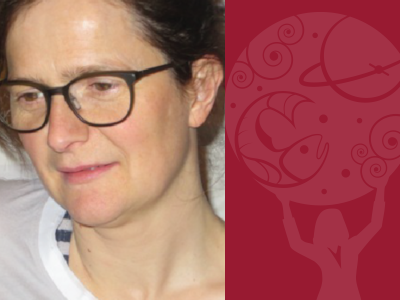“My #AstroPassion is to use space to make Earth a better place”
Marleen's Biography
Helena (Marleen) van Mierlo has more than 20 years of experience in the space sector. Her earlier career includes work on robotics and payload integration on the International Space Station (ISS) both at the Canadian Space Agency (CSA) and the European Space Agency (ESA), as well as work in the area of Satellite Guidance Navigation & Control (GN&C) within different organisations in both Canada as well as the Netherlands. More recently she performed systems engineering and mission management roles in satellite feasibility studies after which her career shifted to the area of strategic planning. Marleen holds an M.S. in aerospace engineering from Delft University of Technology and is an alumnus of the International Space University (ISU).
Senior Engineer, Planning at the Canadian Space Agency. I investigate which satellite services the Canadian government needs in the future. I perform feasibility studies and benefit analyses to find the optimal way to provide these services, for instance through the use of existing satellite data from foreign satellites or by developing a new Canada satellite mission.
The Canadian Space Agency provides funding to the Canadian space industry to perform research, develop new space technology, perform feasibility and other studies, build and launch space hardware such as satellites,space robotics and optical instruments, and develop tools and products that allow the data obtained from remote sensing satellites to be used by end-users on the ground. All CSA’s activities aim to position the private sector at the forefront of space activities such that it will be able to seize commercial opportunities in Canada and globally.
To link the needs for, and opportunities and benefits from space services to the technologies available or under development, and to build connections between different stakeholder organizations in the government, industry and academic world to create the appropriate foundation to make things happen.
A feasibility study for a satellite that can monitor forest fires from space. Canada contains 10% of the world’s forests, which cover nearly half of our country. The Canadian forests’ intense, fast-spreading wildfires have a large impact on the Canadian economy and the well-being of Canadians. Implementing a fire monitoring satellite service could optimize fire management in Canada, consequently reducing the amount of wildfire, which could save the government billions of dollars, improve air quality and reduce carbon emissions.
During our daily lives we rely a lot more on satellites than we realize. By making sure that we use the most advanced space technology and services in areas such as resource management, communications and weather forecasting, many aspects of people’s everyday lives will improve naturally.
That the workforce in astronautics will automatically be considered as a mix of gender such that women will not constantly need to adapt their behaviour to fit into a man’s world in order to succeed. I try to help by daring to stand out with my own female behaviour so that there is one more example of diversity that people can get used to.
Don’t worry about people not liking you. What’s important is that people respect you.


